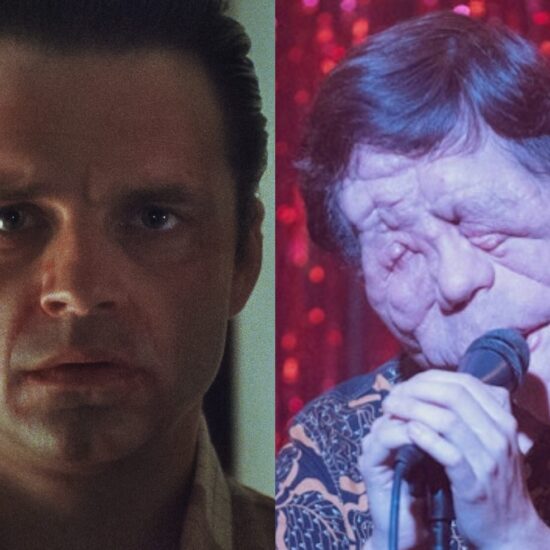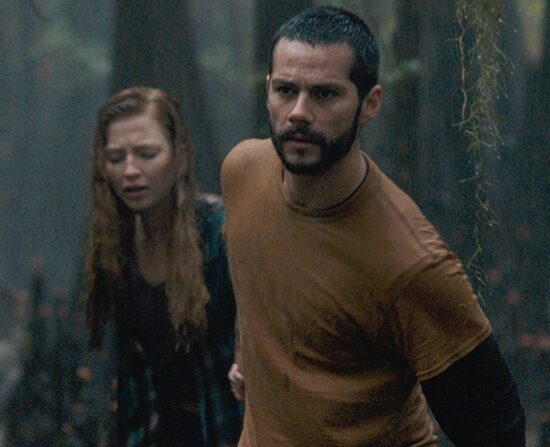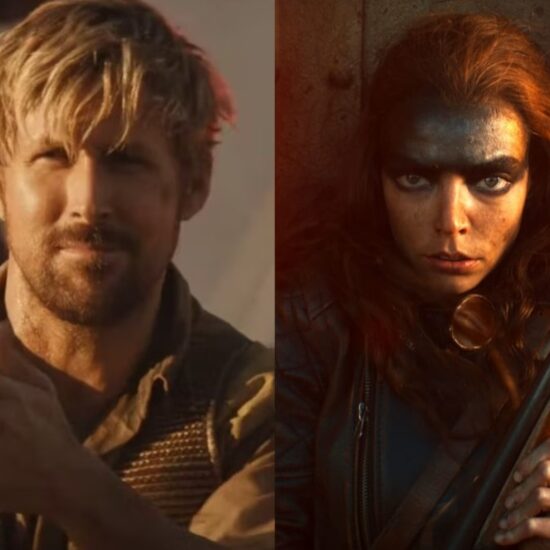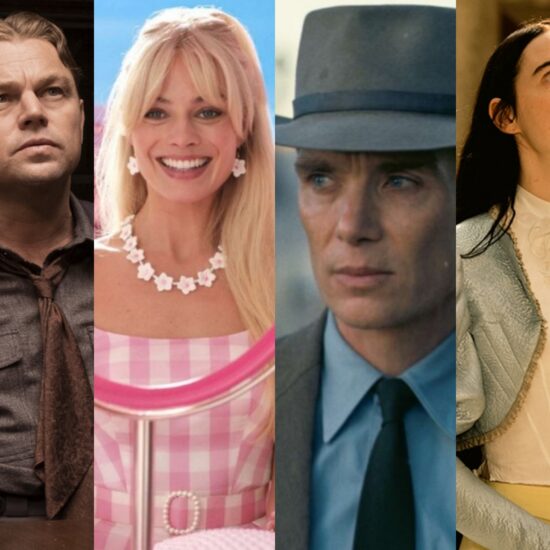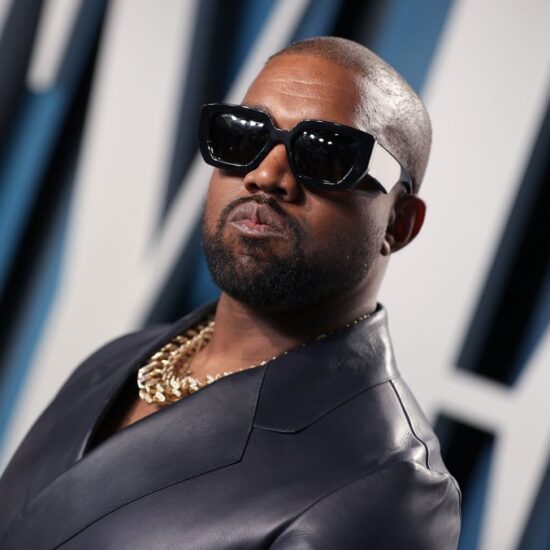
A Conversation with Gordon Quinn and Amir George
For over 50 years, Chicago’s Kartemquin Films has been at the vanguard of social issue nonfiction. “Sparking democracy through documentary since 1966,” as it states on the KTQ website, the group is known for such cinéma vérité milestones as Inquiring Nuns (1968) and Chicago Maternity Center Story (1976); their most famous chronicle of American inner-city struggle, Hoop Dreams (1994); more recent Oscar-nominated breakouts Minding the Gap (2018) and Abacus: Small Enough to Jail (2016); and a boatload of other penetrating, consciousness-raising, award-winning accounts of American life. As the corporate backers and theatrical distributors of documentary film have come and gone, surged and sunk, Kartemquin has stayed the course, kept to its core values, and continued to empower filmmakers to create stories that foster a just society.
Co-Founder/ Artistic Director Gordon Quinn stewarded the Kartemquin ship over the decades (the name is derived, in part, from Sergei Eisenstein’s Battleship Potemkin), but at age 80, Quinn has finally stepped down from his position to make way for new leadership and a new(ish) vision for the venerable nonfiction collective. Filling Quinn’s historic shoes (white socks excluded) is Chicago-born filmmaker and curator Amir George, 35, who worked as one of the core programmers at the True/False and Chicago International Film Festivals, and was the co-curator of Black Radical Imagination, an experimental short film series that toured from 2013-2017. George, a champion of boundary-pushing nonfiction cinema who will now serve as executive producer on Kartemquin projects, may not seem like the most obvious choice to lead the collective, but as he told the Chicago Reader in 2013, “I’m a cinema advocate. It encompasses making movies, showing ’em, enjoying ’em, sharing ’em.”
As a programmer and journalist, I worked alongside George at the Chicago International Film Festival and have written about Quinn’s advocacy at Kartemquin over the years for Indiewire. I met with the two leaders at Kartemquin’s historic 116-year-old house-turned-production-hub on Wellington Street in Chicago’s Lake View neighborhood to talk about the past, present, and future of the iconic organization.
DOCUMENTARY: Amir, what’s your personal connection to Kartemquin? You weren’t even born when the group started.
AMIR GEORGE: I saw Hoop Dreams when I was like seven years old, and that was an inspiration for me to get into filmmaking: Seeing a story about kids in Chicago that looked like me. There was nothing out there like that that was accessible to me. Over the years, there were so many projects that I came in contact with as a programmer, like The Interrupters or Abacas or a screening of ’63 Boycott at Black Cinema House. I’ve always been impressed and fascinated by Kartemquin, their consistency, and their presence in Chicago communities where there was no real presence of filmmaking activity. I’ve met Gordon at different events and screenings, and I always saw him as a man of the people and someone who cared about community. And I’ve always cared about community, as well.
D: Gordon, what did you see in Amir that made you think that he could fill your shoes?
GORDON QUINN: It was a whole committee, so it wasn’t just me. We did a lot of due diligence and had a lot of different conversations. We even created for the finalists a mini-lab where we could see the applicants critiquing somebody’s work, which is a big part of what I do. For me, there were a couple things about Amir: His deep roots in Chicago; he knows the scene in Chicago; and there are certain core Midwestern values he shares with Kartemquin: due diligence and an integrity and commitment to a kind of transparency. And I can probably say this now since he got the job, but there were some people who were like, “Well, he’s young, you know?” And I had to remind people that when we started Kartemquin I was only 24.
D: Amir, how do you feel about taking on this role as artistic director of Kartemquin?
AG: It’s a great honor. I’m thinking about how Kartemquin has existed in the film community for all these years, and I just want to embrace what’s already been there, but also think about how new paths can be created for the future of documentary. I think it’s a big responsibility to try to take on the history that Kartemquin has built, and also try to create new opportunities for emerging filmmakers and find new storytellers throughout the Midwest, and also really look in the blind spots of Kartemquin in the past and shed light on those areas.
D: Gordon, can you talk about specifically being Chicago-based all these years, and what have the challenges been staying in the Midwest?
GQ: When we started in the ’60s, we were very conscious of the fact that the money, the gatekeepers, and the broadcasters were all on the coasts. We even thought about going to Boston at one point, but we made a very conscious decision to stay in Chicago to meet those challenges because if you’re in a place—even if you’re making a film with a national footprint and a lot of our films have a national footprint, like The New Americans or Hard Earned—then you’re capturing that reality. And I think a lot of that has also changed. I think we’re much more on the radar now of the national organizations. ITVS and POV know who we are. We’ve had films with them. We fought for their creation. And when we were in those battles, when we had our media advocacy role, one of the hats we wore was to say we’re the Midwest representative.
The other thing I was going to mention is a problem we’ve had over the years as being thought of as just a vérité house. But if you look at our body of work, I could say it’s not really true [that we only make véritéfilms]. I could say, Look at this film, look at that film. But the reality is that this is a problem that we’ve had that people see us that way. And I think Amir is really going to help us to overcome that stereotype.
D: Amir, can you talk about how you might change that stereotype? Kartemquin is not known for experimental documentary, but a lot of your work and the work you’ve curated is more experimental.
AG: I think documentary has changed. I think the form itself is shifting. I’m a big supporter of that. There are more storytellers who are trying to push the form a bit further and I think that’s important. I think film has to evolve along with society. I want to be able to create a good story, but also have a visual compelling approach to it, doing something I haven’t seen before. I think that’s what I enjoy about making films: trying to do something new. Whether that’s putting the camera in a certain way that someone may not be used to, whether that’s an overhead angle or a Dutch angle, or playing around with different forms and styles, I think that’s the joy of making films. And I think that’s something that I want to continue to embrace. I’m not really married to any particular form of filmmaking, so I want to try to integrate different creative practices and think about film and what the makers were already working with, and try to help them by navigating a path to just making a great film.
D: Do you think with your leadership that you will be attracting a different kind of filmmaker to Kartemquin?
AG: I think so. I think just the network of filmmakers that I’ve been able to connect with over the years come from various backgrounds. I think a lot of them don’t really know about Kartemquin and the resources that Kartemquin have for filmmakers, so I have a goal of just finding those Midwest stories that need more support and need the infrastructure to help them get made. There’s so much that goes into making a film, and it’s important to have a place that has a longstanding history of helping films get made and out into the world.
GQ: The other thing that hopefully we’ll be in a better position to do with Amir here is that I don’t know much about festivals or distribution. There was a time when Tim Horsburgh was here and he really knew a lot about it, but I think Amir brings a certain knowledge that we’ll be able to provide something to filmmakers that they need, and that was not my strong suit.
D: I think there’s so much upheaval in the documentary industry right now and I was wondering, How does a nonprofit collective like Kartemquin survive right now?
AG: I think a big part of sustainability is about community. I think you need a community to embrace what you’ve done and be a part of what you’re doing. I think that’s how Kartemquin has been able to sustain for so long; people know it exists and know the work that’s there and want to keep that going. I’m also thinking about newer filmmakers who have the opportunity to engage with Kartemquin and even open up funding opportunities, as well. There’s no one way to sustain, but it starts with community.
D Clearly, independent documentary filmmakers are not in this industry to make a lot of money, but they do have to survive. Do you feel like the world that we live in right now can sustain independent documentary in a nonprofit model?
GQ: What I always say to the field is that PBS is our best shot. Public media and that little bit of public money that they get, that little sliver—that’s leverage. At Netflix, we don’t have any leverage. If they think they can use us, they want us. If they don’t think they can use us, they’re going to forget about us. But in public television, as long as you have community and that kind of organization, we’ve got leverage.
AG: I also think a lot of the resources are more accessible. The tools to create films are a lot more accessible than they were in the past, so I think you have a lower overhead. You can attach a mic to your phone and make a documentary. I’m not saying that’s the only practice, but it’s a way to create without the worries of cost and supporting crews. It’s about what are the basic tools you need to make something. I think there are also more organizations creating opportunities for documentaries and embracing the independent spirit of their production.
D: Gordon, you have been instrumental as an advocate for this independent media ecosystem. How do you both see Kartemquin’s role now moving forward as an advocate for independent documentaries?
GQ: I think that’s been an important part of our past. I think we haven’t been as active in that area recently, but we did have the Indie Caucus and the big battle about POV. But it’s partly bandwidth and I’m 80. I’m hoping that Amir is going to pick up that mantle.One of things I’ve heard about Amir is that he has the ability to bring people together. And the key thing about those battles is you have to bring the community together and get them to stand up in mass and say, Hey, we have a problem here.
AG: I’m always thinking about what do these people need to execute their dreams, their goals, and trying to make that happen for them. I’ve always been a big fan of advocacy, in general, especially when it comes to cinema. I think Kartemquin is a strong force; it has a very powerful voice and takes a strong stance and a lot of people will listen. But as I’ve been taking on this position, it’s more about learning about what people are missing out on and what are the new battles ahead for us.
But I think that we’ll be prepared for it. I think we have a strong community that’s aligned with us, a lot of allies who want to see more documentaries in the world, and want to see film have a strong impact. I’m always trying to find those places where film doesn’t exist, and expand access to films. It’s about creating opportunity for those who haven’t had those opportunities in the past, most importantly. What doors do we need to knock down? I think Gordon has been a big champion of that. And being a very radical, badass type of guy, he was not going to take stuff from people. And he would challenge the systemic nature of how things function because they haven’t served everybody. I just want to carry that on in a very honest and transparent way, and also being supportive of all the voices out there that haven’t been heard.
GQ: For me, being part of a field, you take responsibility for your field. I gave a talk at Columbia College and the gist of it was: You’re going to go out and become a part of this field now, so you have a responsibility to make it what you want it to be. I often tell the story of many years ago when I was on some kind of panel about public television and somebody asked me, “What is it that PBS wants?” And I said, “That’s the wrong question. What is it that you want it to do? What’s the story that you feel needs to be told, and how are you going to make PBS take it or want it?” That’s how I see our role out there and I think that I’m not sure what it will look like in the future, but as Amir is saying about community, you only win those struggles when you build a community.
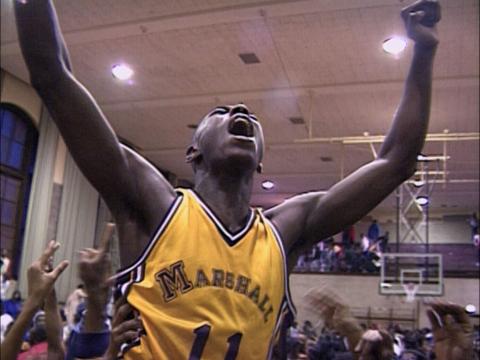
D: I see what’s happening in the U. politically with some frustration, and how some of the issues Kartemquin were fighting against and raising awareness about 50 years ago are still with us. What do you both think of Kartemquin’s role in addressing social justice issues and trying to move the needle on these issues? Do you feel like you can still do that?
AG: As long as we’re active in making films, that’s the way to work towards those things. And to think about those policies you can address but also outside of filmmaking. I think it’s a two-part action of having a presence in other communities, as well—going to the activist communities and learning what their issues are, so that we can be better informed about how we’re making films and inspire others in what they’re doing to keep up the good fight.
GQ: It is frustrating sometimes when you see that we’re still battling with the same problems. On the other hand, it’s very inspiring when we show a film like the Chicago Maternity Center Story today and it’ll bring out women in the audience who are from my generation, and then there’ll be a whole other part of the audience that are all these young women who are still fighting battles around childbirth and around women’s control over those issues and we have them all in the same room with each other. I love those screenings.
But you have moments of discouragement. It’s like in our early days some of our very first films, where they were very purist vérité, we thought holding a mirror up to society would be enough to create social change. Well, that neglects to look at power relationships. And I think that is key to thinking about social change. It’s not necessarily the best way to look at where we are in terms of equity and where we are in terms of resources. Then you have the analytical pieces like The Last Pullman Car or Maternity Center. But then Steve James came along and he gave us Hoop Dreams and you can see the enormous impact of that film.
AG: I agree with everything Gordon is saying. I come from those communities you see in Hoop Dreams. I’m a part of that. I’m also a part of a lineage of Black filmmakers who haven’t been given as many opportunities in their career. So I’m always thinking about how to move forward, how to represent that history, and still achieve things and accomplish things for other new artists. We always have to find ways for ourselves to survive, especially in the Midwest. And we can only do that together.
D: Kartemquin was a white-led organization for a long time, and now it has a Black leader. How important do you think that is?
AG: It’s important for people to understand that Kartemquin is going to evolve and grow along with the rest of society and the rest of the filmmaking community and I’m just a part of it. I care about history. I care about rights. I care about freedom. These are things that I felt lined up with my personal values along with Kartemquin’s values. So I felt it just made sense. It’s the only organization I can think in the Midwest that has sustained this long, but always been a champion of trying to make progress.
Kartemquin Films will be presenting a farewell party for Gordon Quinn on Monday, December 5, entitled “A Roast and a Toast: Celebrating Gordon Quinn and the Future of Kartemquin Films. For more information, click here.
Anthony Kaufman is a freelance journalist, film instructor at the New School, DePaul and Loyola Universities, Senior Programmer at the Chicago International Film Festival and the Doc10 film festival, and co-author of Hope for Film: A Producer’s Journey Across the Revolutions of Indie Film and Global Streaming.









